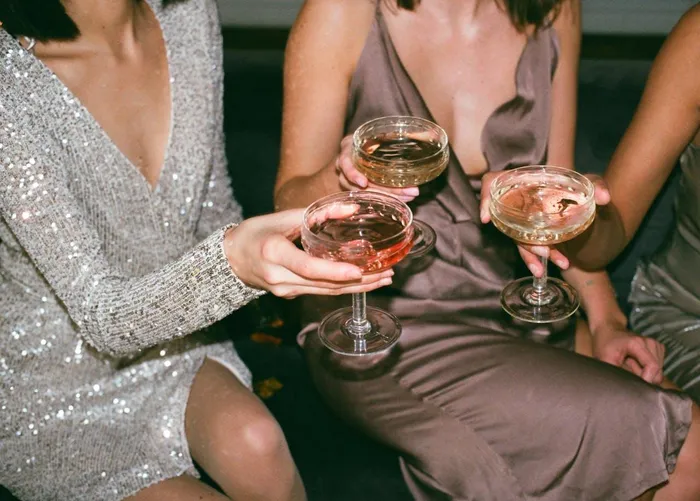Reality TV's intoxicating influence: the troubling normalisation of drinking culture

Studies have shown that adolescents who are consistently exposed to alcohol portrayals on television are more likely to start drinking at an earlier age and may engage in heavier drinking.
Image: Picture: Pexels
In the world of reality television, alcohol often plays a starring role. Whether it’s cocktails on a dinner table, wine on an excursion or a celebratory toast, drinking seems to be part of the script.
Reality TV thrives on tension, and alcohol has become a quick way to amplify it. Producers know even the calmest cast members can become more emotional, impulsive or outspoken after a drink.
Those explosive arguments, heated confessions, and shocking antics often happen around a table of drinks. A glass of wine or the popular "skinny bitch" drink can turn a casual chat into a headline-making moment.
While drinking is not officially mandatory for reality TV participants, the environment often makes it feel that way. Night outs, dinner parties and social challenges frequently centre around alcohol. Refusing a drink can make someone feel out of place, or at least less part of the on-screen story.
This is clear in international shows like "Big Brother" and "Love Island", as well as local shows like "The Real Housewives of Durban", where scenes often centre around parties or drinks-fuelled conversations.
The message is subtle but consistent: a cocktail in hand is part of fitting in.
The effects of this constant alcohol presence are not always harmless. Reality TV drinking has led to scandals, public fights and embarrassing behaviour, sometimes spilling over beyond the cameras.
Stars from the Real Housewives franchises, "Jersey Shore", and "Love Island" have made headlines for incidents linked to drinking, reminding us that what happens on-screen can have real-life consequences.
In some cases, participants have admitted to being drunk for much of filming, such as "Perfect Match" contestant Harry Jowsey, highlighting how easy it is for drinking to dominate the experience.
The link between alcohol and drama is evident in long-running franchises like "The Real Housewives". In Cape Town, the show has had several alcohol-fuelled moments, with co-stars clashing over behaviour during drinking scenes.
Internationally, "The Real Housewives of New York City" has seen incidents that went beyond on-screen arguments.
Cast members such as Luann de Lesseps have publicly faced legal trouble and entered treatment for alcohol-related issues, while others, like Leah McSweeney, have shared personal struggles with sobriety under the pressures of filming.
Another concern is the exposure it creates for younger viewers. Even if shows carry age restrictions, clips circulate on social media and reach impressionable audiences. Watching favourite stars drink frequently, celebrate with champagne, or solve conflicts over cocktails can normalise alcohol use.
Research indicates that reality TV programmes are a substantial source of exposure to alcohol imagery for young people. A study published in the "Journal of Public Health" analysed 264 episodes from 20 reality TV shows aired between 2019 and 2020.
The findings revealed that alcohol-related content appeared in numerous episodes, including actual consumption, implied use, and alcohol-related paraphernalia.
Shows like "Geordie Shore" have been particularly criticised for their excessive portrayal of drinking. In fact, a study analysing season 11 found that 78% of scenes contained alcohol content, with 30% depicting actual alcohol use.
Further studies have shown that adolescents who are consistently exposed to alcohol portrayals on television are more likely to start drinking at an earlier age and may engage in heavier drinking.
This is particularly concerning as these portrayals often present alcohol consumption as glamorous or an essential part of social interactions
Not all shows ignore this issue. Some now include disclaimers, highlight non-alcoholic options, or feature cast members who openly avoid drinking.
These moments show that you don’t need to drink to participate, entertain, or survive on reality TV. Still, the stereotype persists: alcohol equals drama, drama equals ratings.
Ultimately, alcohol in reality TV serves multiple purposes. It fuels the conflicts that keep viewers watching, encourages consumption both on-screen and off, and exposes younger audiences to frequent drinking.
It also amplifies the behaviour of reality stars, sometimes leading to public scandals, personal struggles or controversial headlines.
Related Topics: